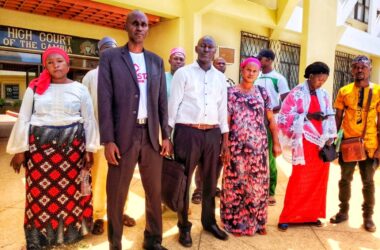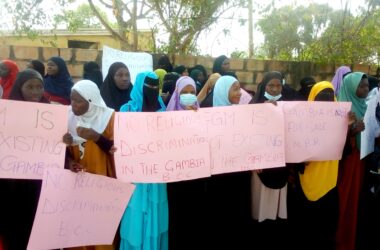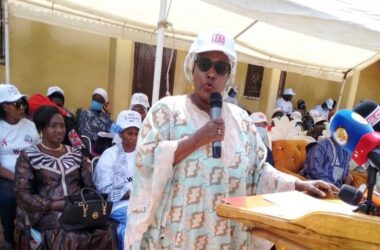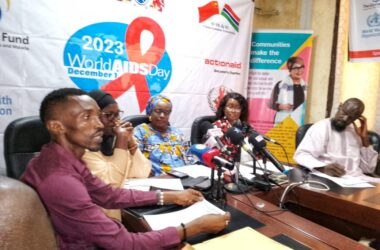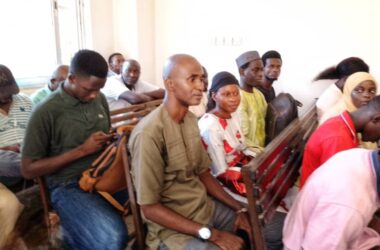By Kemo Cham
For years now HIV/AIDS has dominated health discourse around the world, perhaps because of its seemingly uncontrollable rate of infection with no immediate cure on sight. It’s devastating effect is more pronounced here in the developing world where, thanks to outstretched budgets, efforts to contain its menace has effectively been reduced to mere discussion and hardly anything. HIV/AIDS patients in this part of the world have mainly been abandoned to their fate as there is hardly any African government that appears to treat it seriously. There is the famous case of near denial of its existence by former South African president, Thabo Mbeki. Gambia’s President Yahya Jammeh’s claim of cure continues to defy the world’s understanding about what he actually means.
But with all these, stigma remains one very outstanding factor that aggravates the situation for sufferers here. This was a subject of a pertinent discussion by Lindsay Briggs, a PhD candidate at the University of Illinois in the United States.
Briggs who focuses in the field of Health Behavior with a specialization in African Studies was recently in the Gambia where she delivered a lecture under the auspices of the United States Embassy in Banjul.
Lecturing on the theme: Reframing HIV in Africa: moving from a deficit model to a strength model, the University of Illinois academician focused mainly on her experience with mainstream perceptions of HIV as a public health issue in Africa, the public health tradition of focusing on negative perceptions in Africa and how people can better capitalize on strengths that will impact positively on the HIV epidemic.
She described the disease as one of the biggest public health concerns that can hardly be avoided in any public health discussion. For the rate of HIV to be reduced or eliminated, she warned, people must understand that it is not a death sentence – something that should discourage people, bringing them to the thought of only death.
This is a very important point because in a society as the one in Gambia, there is this predominantly held view that HIV is is acquired only through sex. Patients aren’t only thought of as guilty, but they can’t help but feel so. This absurd perception is especially unfavourable to the women folks who mostly turn out to be victims of their husbands’ making. That is not to say all men are guilty. No.
Acknowledging a minimal decline in infection rate of the disease on the continent, which she said is mainly as a result ”effective collaboration between African leaders and stakeholders”, Brigs told a group of mainly public health students from the University of The Gambia (UTG) that there is still need for more improvement to move from a deficit to a strength model.
One of the biggest factors that lead to spreading of the disease, she said, is stigma, saying: ”More public awareness campaigns are needed in order to raise the awareness of the people on HIV”. And she argued that the intensity of social networking could be a means to curb the menace of the disease.
The contribution of poverty to increasing rate of infection also featured in the Banjul discussion. According to Briggs, HIV/AIDS is a disease of the poor. She sought to justify this contending view by saying that most of the people who acquire HIV are poor and vulnerable; people, she went on, who do not have access to health care, education and resources.
She however quickly added that investigations were still on course as to why HIV affects mainly the poor, concluding though that prostitution has since been discovered as a means of livelihood for many women trapped in the web of poverty.
Warning: Trying to access array offset on null in /srv/users/jollofnews/apps/jollofnews/public/wp-content/themes/wpzoom-prime-news/functions/widgets/carousel.php on line 39



